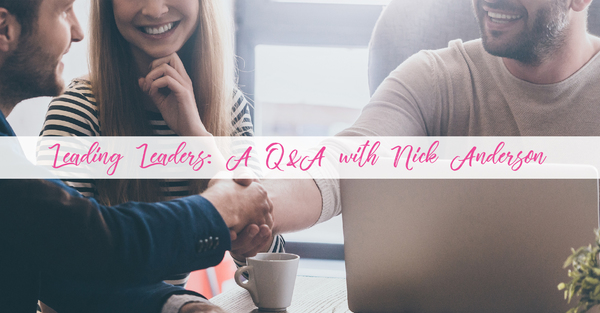Drop off your CV
We serve the global HR community through our offices located in Delhi, Hong Kong, London, New York, São Paulo and Singapore and have placed HR leaders in over 30 countries.
Phillip Welburn sat down with Nick Anderson to discuss how his passion for psychology and de...

Phillip Welburn sat down with Nick Anderson to discuss how his passion for psychology and desire to shake up how we sustainably develop and support people and organisations led him to found Switch Consulting.
Can you tell us about your career trajectory?
In HR terms, I am a specialist through and through. During my undergraduate degree in psychology at Bath University I was lucky to get a placement working with one of the UK’s leading Business Psychology firms, it really ignited my passion for psychology. Following my Masters in Organisational Psychology I moved into HR with HSBC in London and then Hong Kong. I then moved to Bank of America Merrill Lynch for six and a half years. I’ve always worked in specialist roles; HR Strategy, Talent, Recruitment, Leadership, OD and Learning. My last “in-house” role was Regional Head of Learning, Leadership Development and D&I for Bank of America Merrill Lynch for Asia Pacific. Whilst working I also completed a Masters in Coaching and Mentoring Practice and a Masters in Counselling. I’m also currently working on my PhD in Coaching.
Why did you decide to set up Switch?
I wanted to spend more time working directly with clients, providing 1:1 coaching 1:1 or in small groups. I really enjoy it. More broadly, I feel we have room to shake up the way we develop and support people in organisations. I’m interested in how we can support leadership, talent and elite performance development over longer timeframes. I want to drive true development and learning, rather than surface skills, which frankly don’t make a great deal of difference to leadership performance.
What are the main areas of your business?
I spend most of my time in either 1:1 executive assessments for hiring or development, coaching, or delivering leadership programs. I’ve also been fortunate to work on a couple of larger scale transformations, focused on structural and cultural change, which I really enjoyed.
What do you hope to achieve in your business?
“To help others” is the simple answer. I want to build a purpose driven business that really helps people and organisations. I feel that the coaching skillset is a really powerful developmental and consulting tool. I want to help people get better in their roles and build better leaders, teams and cultures that impact my client’s bottom line.. When I decided to set up my own business there was also a social responsibility element to this as I wanted to create time to volunteer. I’ve been volunteering one day a week, counselling asylum seekers on trauma issues with The Centre for Refugees and also with Justice Centre Hong Kong. It’s been a pretty transformative experience for me.
How do you differ from your competition?
I am interested in driving deeper solutions over longer timeframes. I combine models from Organisational Psychology, Coaching and Adult Development and with a focus on using clinical approaches to drive lasting change. I am also interested in answering different questions. At the moment I am really interested in how elite performers in business can push for marginal gains, and how we could effectively support those shifts.
What makes a great leader?
For me, the great leaders I have assessed, developed or worked for have very little in common with one another! I would say more generally, they tend to have a couple of areas of outstanding strength. They are nearly all continually learning and have a strong reflective capability, they seek feedback and they know themselves really well. They are also open to changing themselves and their views. Great leaders are good listeners and “askers of questions”, they take a systems view, they develop other leaders and other people buy into them. Another consultant and I were having a chat recently and he is a big believer in great leadership being “context specific”. I’d probably agree. From an adult development perspective, great leaders are able to see multiple perspectives on an issue.
Could all leaders benefit from a coach?
I think everyone would benefit from having someone who really listens to them. I think all leaders should be continually learning and developing through the life span of their careers. Having a coach supports the unfolding of that process.
What kind of methodology do you use when coaching a leader within an organisation?
I think coaching methodology is really important when you’re starting out. Learning tools and techniques is key for building your confidence, but it becomes less so when you develop further. I have my own coaching model that I’ve developed over time. It incorporates the various learning from organisational psychology, coaching courses and some tools from counselling, a lot of reflective work with supervisors and my own coaching. Research from the world of coaching would indicate that it’s the coaching relationship, rather than tools or specific technique that makes the difference in coaching. I’m doing my PhD in this area, so it’s really hard to answer in a straightforward way!
This year we will be publishing further articles in a series with Nick Anderson on pertinent topics such as workplace wellness and mental health.
Follow us on LinkedIn and keep an eye on our blogs for their release.
If you would like to discuss any of the above, you can get in touch with myself at pw@elliottscotthr.com or if you would like to know more about Switch Consulting, get in touch with Nick at nickanderson@switchod.com